Most business reports look back to the past – they show what has happened. They don’t answer crucial questions like: what are the reasons for a certain development, what can we expect in the future or what kind of action is required? HR Analysis can help you find answers to these key questions. Through advanced statistical methods, also referred to as Machine Learning or Artificial Intelligence, HR Data Analytics provides insight into a certain HR or organizational problem. The statistical methods are used to reveal patterns from large data sets. These patterns are subsequently used to explain, predict and advise about the necessary course of action. This is also referred to as diagnostic, predictive and prescriptive analytics.
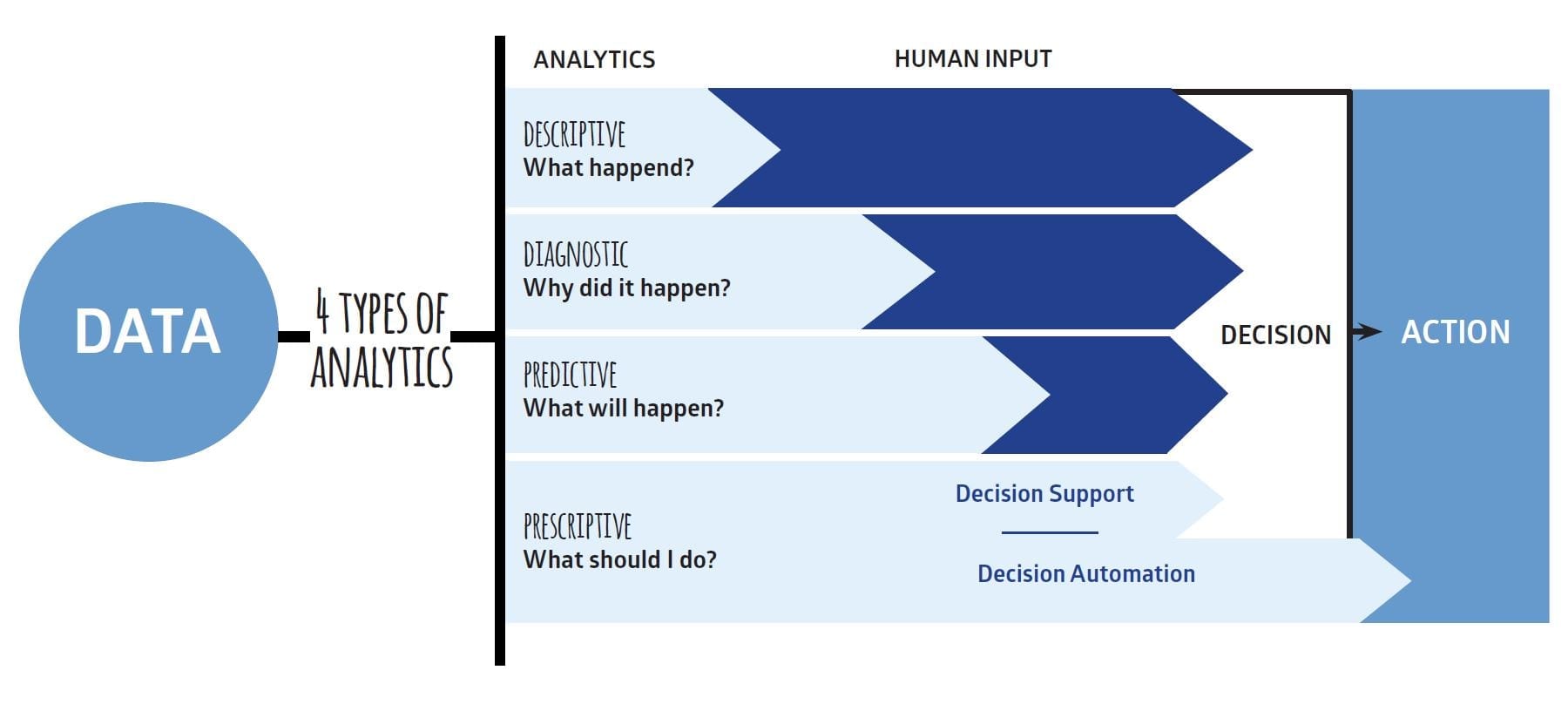
Ask without obligation for more information!
An example of HR Analysis
To illustrate, here’s an example of HR Analysis that focuses on the topic of absenteeism.
- The problem
- Reporting
- Diagnostic Analytics
- Predictive Analytics
- Prescriptive Analytics
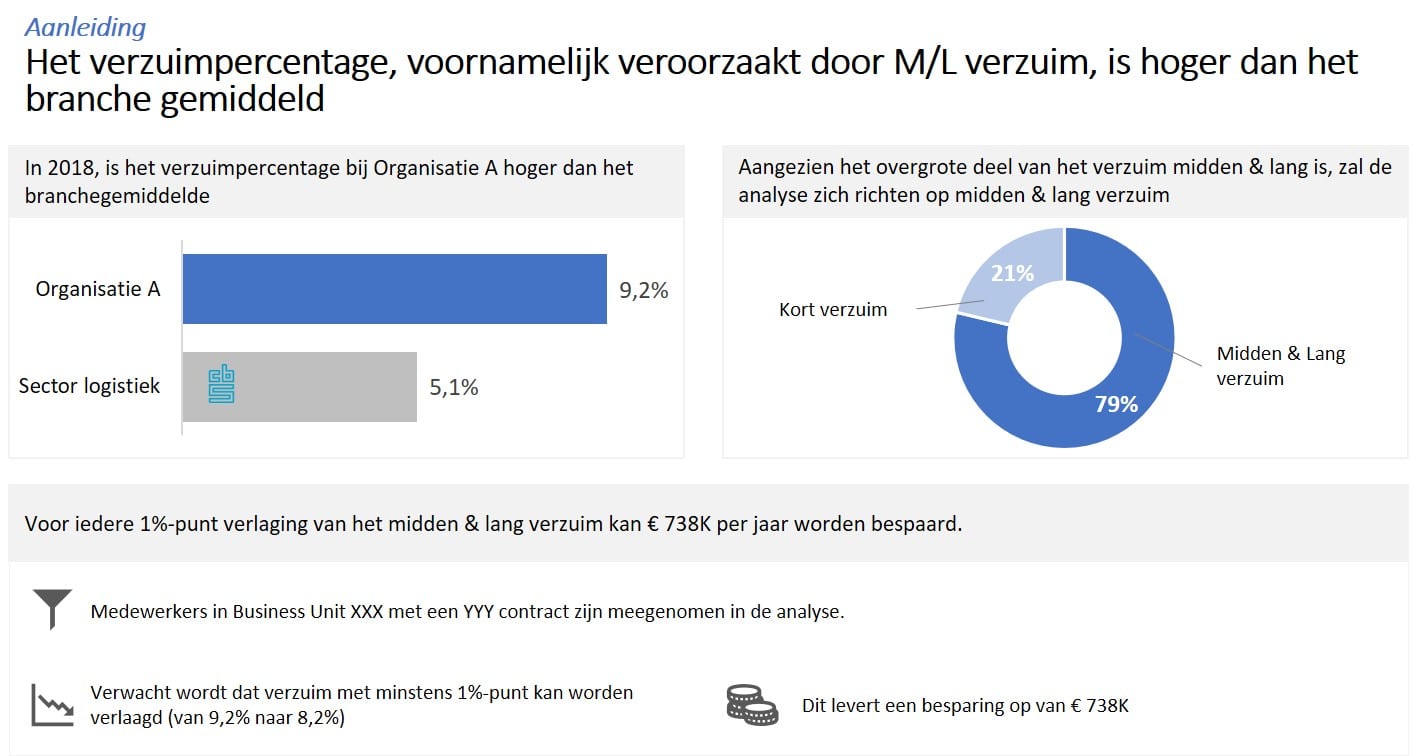
The absence rate is stable at 6.5-7.0%. Around 80% of all absenteeism consists of long-term absenteeism.
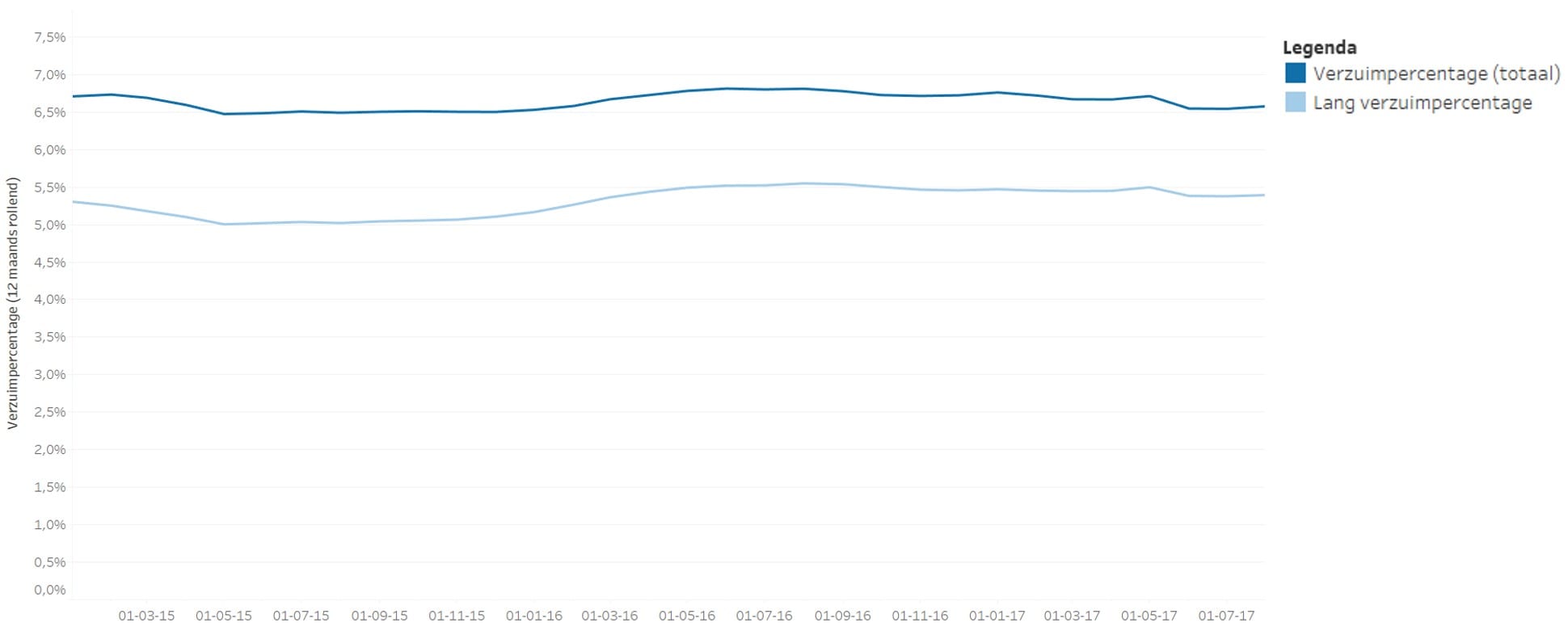
Of the 150 analysed variables, # were related to medium and long-term absenteeism. A multivariate analysis indicated that the variable ‘manager changes’ correlated the strongest with the likelihood of medium and long-term absenteeism.
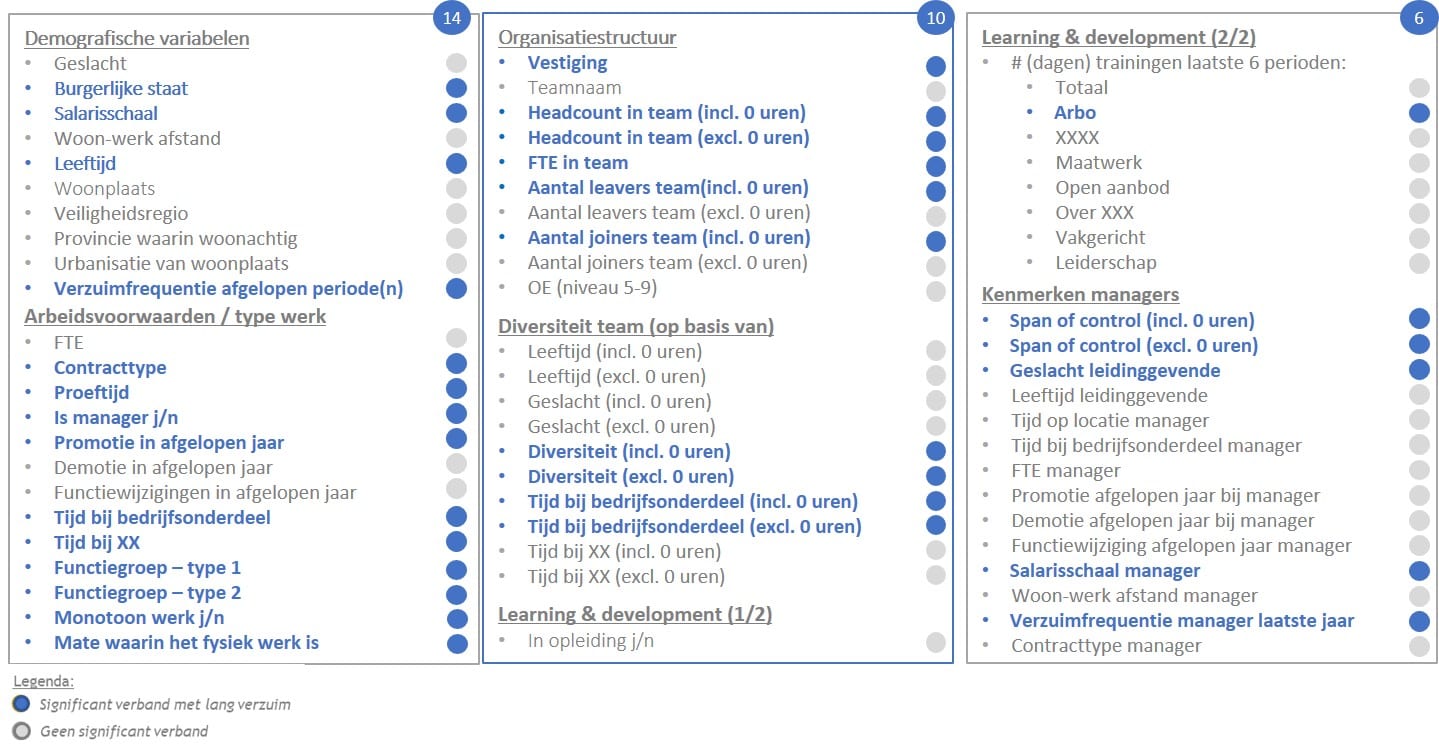
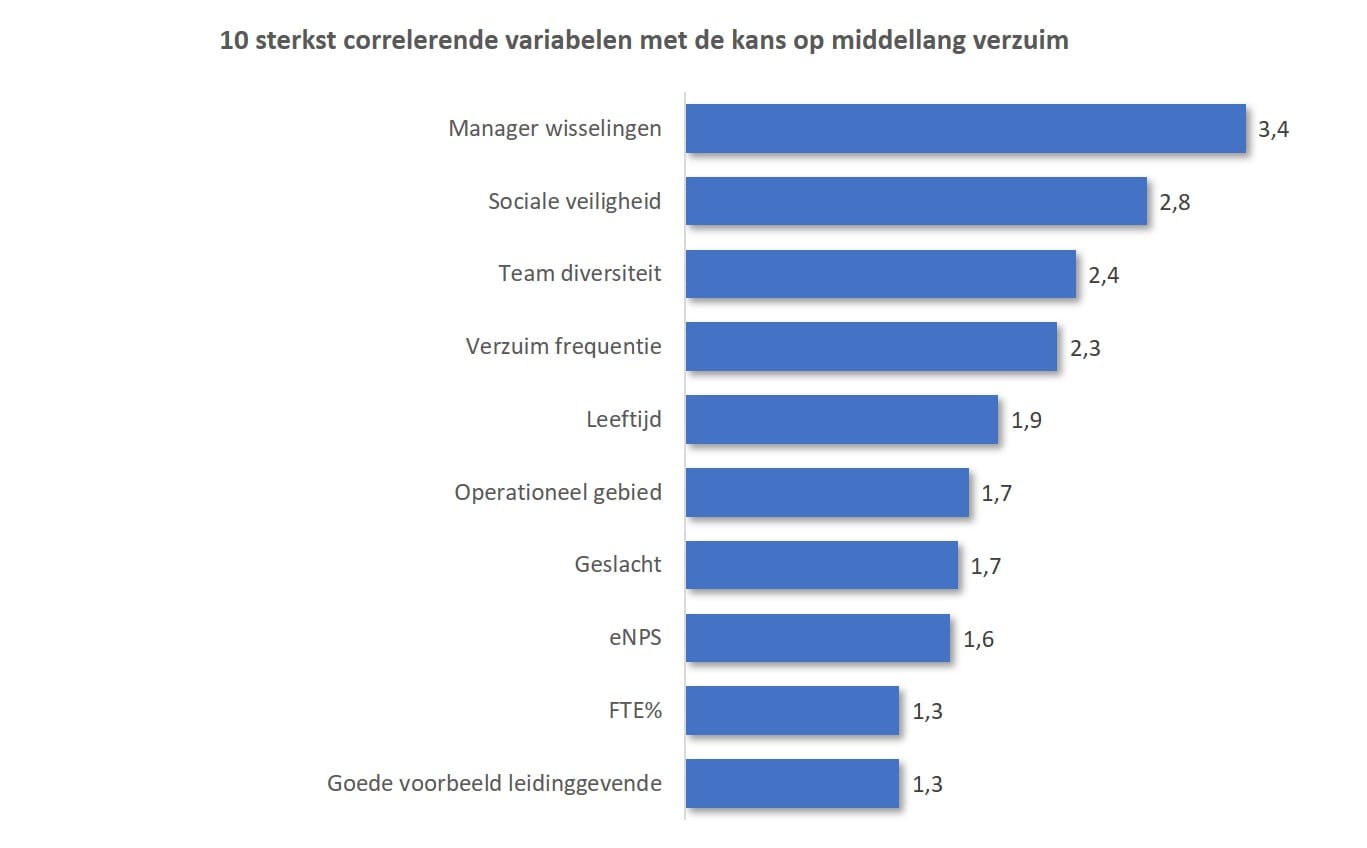
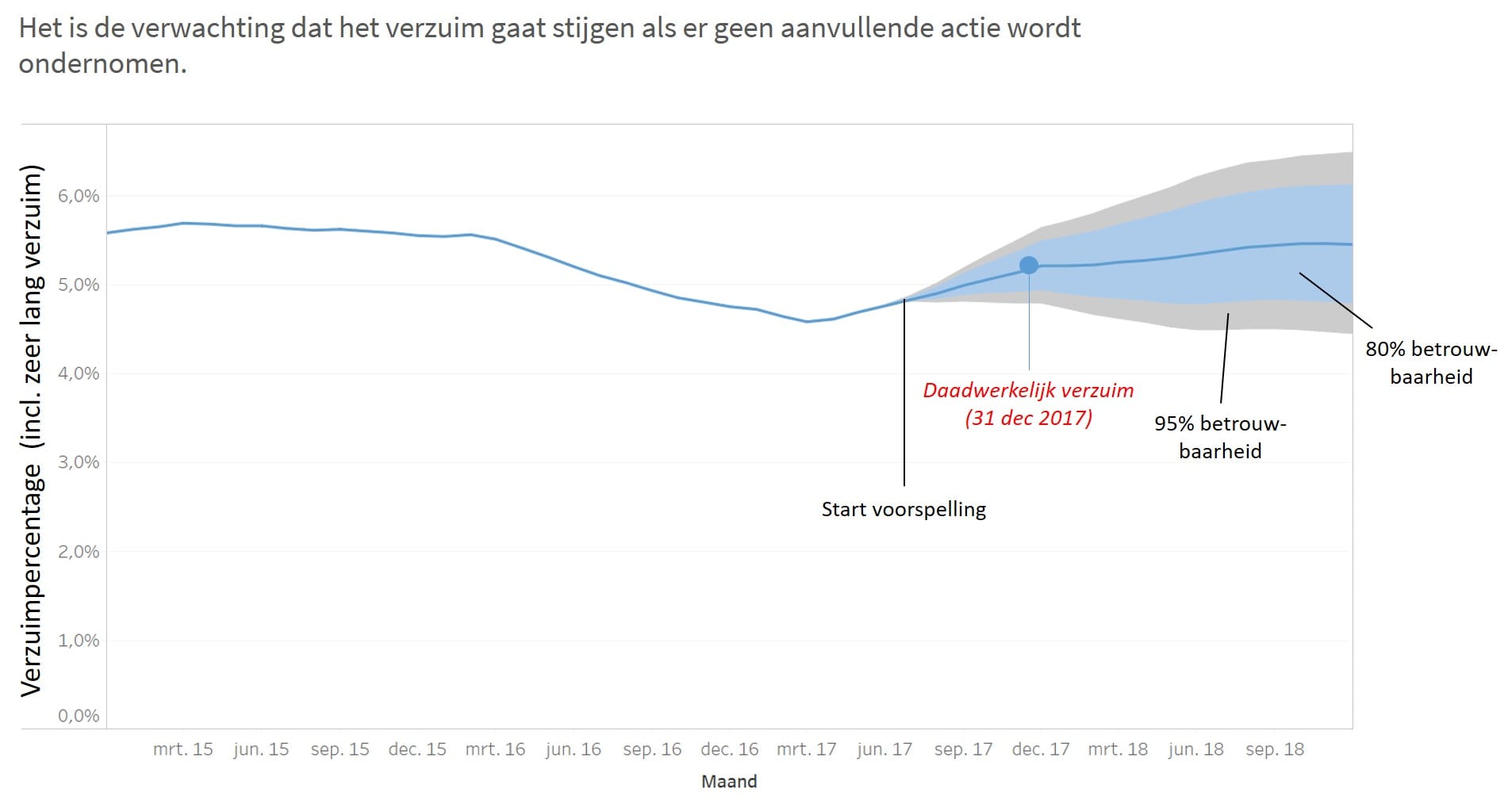
Employers might consider the factors age, FTE% and caring responsibilities in their approach to absenteeism management, to help them understand which points the case manager/company doctor should prioritize.
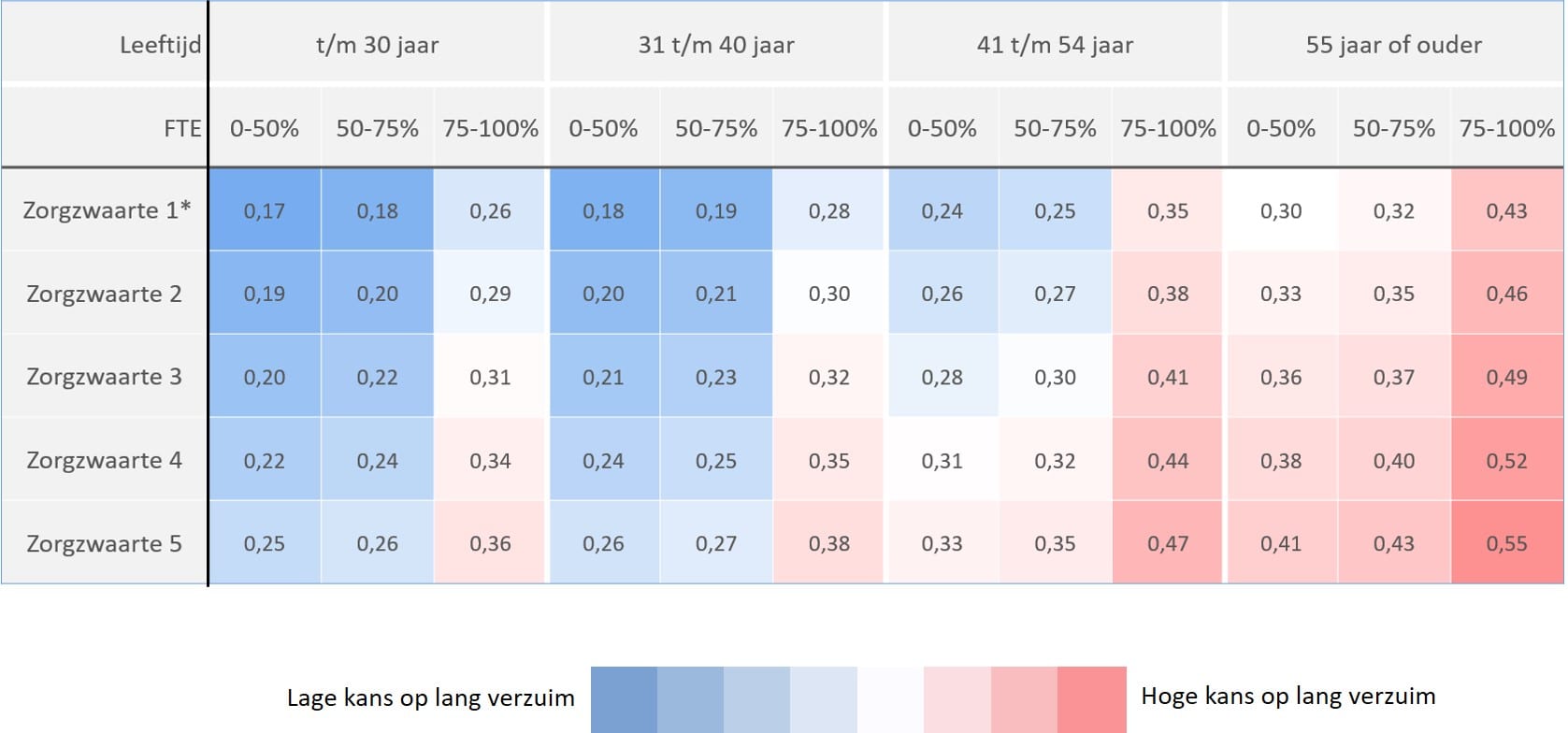
How do I get started with HR Analysis?
Ideally, HR Analysis is integrated in a continuous organizational process, which starts with deciding on the priorities. HR Data Analytics can subsequently help determine the required policies, actions and target values. You can check if your targets are being met via an HR Dashboard. As soon as the goals are fulfilled, the targets can be moved again, starting a new round of planning, analysing, acting and checking.
Within this planning and control cycle, there’s a specific step-by-step process for HR Data Analytics. This starts with deciding on the business problem; what is the challenge and why is it relevant? This is subsequently translated into analysis questions. Once these questions are defined, we start collecting data. Sometimes, the data are already available. In other cases, the required information is collected via an employee survey or from the Internet. When all data are collected, they need to be transformed from what’s like a messy plate of spaghetti into a plate of neatly arranged asparagus. This data ordering is followed by the statistical analysis. The outcomes of the analysis are visualized in an HR Dashboard/Report and presented to the policy makers (Centers of Excellence) or those responsible for mobilizing the (line) organization (HRBPs). Finally, the HR Metrics are used to check if all results are achieved or if certain adjustments are needed.
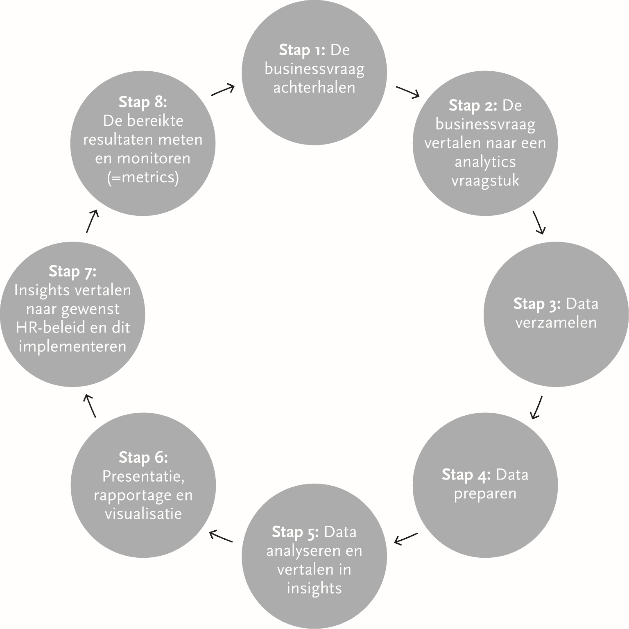
What is the end product of HR Analysis?
There are generally two formats for the end product of HR Analysis.
- Sometimes, an analysis is conducted only once, or it’s carried out in the context of a specific study. In the case of a study, the end product is usually a presentation. This gives an overview of the insights and recommendations in a logical structure, which the client can subsequently put into action.
- In other cases, we deliver a digitally scalable product. An automated system collects, transforms and analyses the data, the outcomes are compiled in a digital HR Dashboard and the output is adjusted to the role of the HR Dashboard. As a result, the HR Business Partner of Division A for example, can receive other insights than the HR Business Partner of Division B. This type of end product is also referred to as ‘industrialized HR Analytics’. It can deliver insights to a large group of end users on a regular basis, without requiring lots of manual labour.
Privacy safeguarding
Trust can take years to build but only a second to break. That’s why it’s extremely important to think very carefully about things like data security, ethics and privacy before each HR Analysis. When AnalitiQs carries out an HR Analysis, we always start with conducting a Privacy Impact Assessment together with the client. This tells us if the HR Analysis can be conducted within the existing legal framework and which security measures need to be put in place. Ethical aspects are considered as well. Certain things might be legally permitted, but not desirable because of additional, internal agreements or other ethical considerations that are playing a role. We only start collecting and processing data once the privacy, security and ethical aspects have been carefully considered.
AnalitiQs helped us set up our Strategic Workforce Planning quickly and successfully. The meetings with the managers were well led, the data model was clear, and we received excellent training. We often use the insightful reports during meetings with the various departments, and they contribute to a faster, well-founded decision making. The strategic staffing plan has helped us prepare Tragel for the future.
Sylvie Bertijn
HR Manager | Tragel
Interested? Feel free to contact us!

Gido van Puijenbroek
Detailed Service Overview
HR Analysis
Equal Pay
Gender mobility
Absenteeism
Employee Segmentation
Employee Retention & Attrition
Engagement
Impact Measurement / ROI
Learning & Development
Management Development
Onboarding
Organisational Network
Performance
Process Mining
Productivity
Recruitment
Restructuring / Organizational-Development
Reward
Strategic Workforce Planning
Succession Management
Employee Surveys
Culture
Employee Satisfaction
Job Satisfaction
Inclusion
Onboarding
Employee Turnover
Diversity
Employee Community / Panel
Employee Engagement
Employee Commitment
Employee Journey
Employee Net Promotor Score (eNPS)
Employee Value Proposition (EVP)
Employee Enthusiasm
Labour Market
Labour Market Panel
Labour Market Positioning
Leadership
Manager Feedback
Personal Development
Pulse
Retention
Role Clarity
Sentiment
Strategic Alignment
Team Feedback
Total Reward Optimization
Voice of the Employee (VoE)
Work from home
Work Stress
Work Pressure
Capability Building
HR Analytics Strategy
HR Analytics Product Owner
HR Analytics Outsourcing
HR Academy
HR Dashboards
Absenteeism Dashboard
Integral HR Dashboard
Leadership Dashboard
Learning Dashboard
Recruitment Dashboard
Reward Dashboard
Talent Development Dashboard
